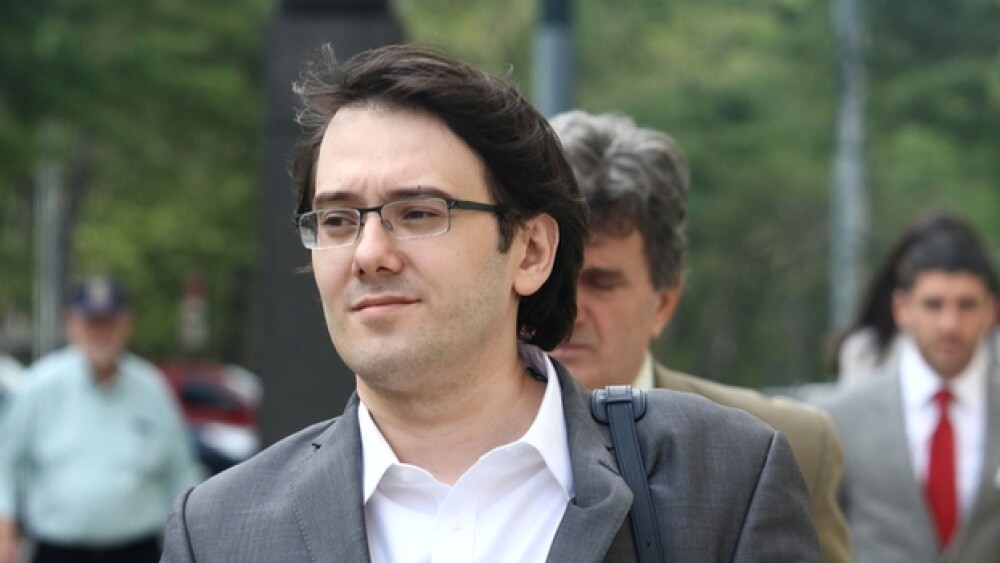The Chapter 11 bankruptcy was driven by increasing generic competition, declining profits and the unrelenting legal woes of its head Martin Shkreli, dubbed “Pharma Bro” in the media.
Pictured: Martin Shkreli walking, Courtesy JStone/Shutterstock
Wednesday, Martin Shkreli’s Vyera Pharmaceuticals filed for Chapter 11 bankruptcy protection with the U.S. Bankruptcy Court for the District of Delaware, according to a report by Reuters.
Vyera, formerly Turing Pharmaceuticals, was driven to bankruptcy by mounting generic pressure, declining profits and a Federal Trade Commission litigation over its toxoplasmosis tablet Daraprim (pyrimethamine).
According to the filing, the company estimates its liabilities to be between $1 million and $10 million and counts around 100 to 199 creditors, which it intends to repay by selling off its assets. In the Chapter 11 document, Vyera says its assets are worth between $10 million and $50 million.
Daraprim is an oral anti-parasitic drug used for the treatment of toxoplasmosis in combination with a sulfonamide medicine. Daraprim is also indicated for acute malaria.
In January 2020, the FTC launched a federal complaint against Vyera, alleging that the company engaged in an “elaborate anticompetitive scheme to preserve a monopoly” on Daraprim, which in turn allowed Vyera to hike the price of the medicine by over 4,000%.
Vyera settled this lawsuit in December 2021 for $40 million and a promise to end its monopolistic practices.
When the company bought the rights to Daraprim in 2015 for $55 million, it immediately raised its per-tablet price from $17.50 to $750, which “significantly” affected access to the medication, the FTC alleged.
“Vyera kept the price of Daraprim astronomically high by illegally boxing out the competition,” Gail Levine, former deputy director of the FTC’s Bureau of Competition, said in a 2020 statement.
Two months after the FTC charges, the FDA signed off on New York-based Cerovene’s pyrimethamine generic.
Scandals, Legal Problems
Shkreli became infamous in 2015, after he inflated the price of Daraprim. In the months that followed, he continued to take steps that attracted controversy, including acquiring New Jersey biotech KaloBios, making a $2,700 campaign donation to former Democratic presidential candidate Sen. Bernie Sanders (I-VT) and saying that he should have hiked Daraprim prices even higher.
Shkreli was arrested in December 2015 on eight counts of securities fraud, conspiracy to commit securities fraud, and conspiracy to commit wire fraud.
He was found guilty of two securities fraud charges and one conspiracy charge in August 2017. Though the disgraced CEO could face up to 20 years in jail, he remained unapologetic and called the trial a “witch hunt.”
In February 2018, Shkreli lost another ruling with a U.S. district court finding him responsible for more than $10 million in financial losses. A month later, a judge ordered him to forfeit $7.36 million in assets.
Shkreli continues to weather his legal woes. In January 2022, he was ordered by a U.S. district court judge to surrender $64.6 million in profits from the inflated Daraprim prices and was banned from any future involvement in the pharma industry.
He received a second lifetime ban a month later, in February, disallowing him from taking leadership positions at publicly traded companies. In March 2022, a judge also denied his request to delay his payment from a prior ruling.
Tristan Manalac is an independent science writer based in metro Manila, Philippines. He can be reached at tristan@tristanmanalac.com or tristan.manalac@biospace.com.






